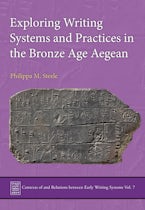Waste represents a category of ‘things’, which is familiar and ubiquitous but rarely reflected in archaeological and cultural studies. Perception of waste changes over time and practices associated with waste vary. The ambiguity of waste challenges traditional archaeological approaches that take advantage of refuse to infer past behaviour. Recent developments in research in the social sciences and humanities indicate that waste offers many more dimensions for exploration.
This interdisciplinary book brings together scholars who demonstrate the potential of research into waste for understanding humans, non-humans and their inter-relations. In 12 chapters the authors cover topics ranging from the relationship between waste and identity in early agricultural settlements to the perception of contemporary nuclear waste. Although archaeological approaches dominate the contributions, there are also chapters that represent the results of anthropological and historical research.
The book is structured into three main sections that explore the relationship between waste and three domains of interest: value, social differentiation, and space. Archaeologies of Waste will interest archaeologists, anthropologists, historians and other readers intrigued by the potential of things, which were left behind, to shed light on social life.
Preface
Daniel Sosna & Lenka Brunclíková
1. Introduction
Daniel Sosna & Lenka Brunclíková
SECTION 1 – Value of the Unwanted
2. Wastes and Values
Joshua Reno
3. Purity and Holy Dumps of Garbage: Organising Rubbish Disposal in the Middle and Late Bronze Age of the Carpathian Basin
Laura Dietrich
4. Nightman’s Muck, Gong Farmer’s Treasure: Local Differences in the Clearing-Out of Cesspits in the Low Countries, 1600 – 1900
Roos van Oosten
SECTION 2 – Social Practice: Consumption and Differentiation
5. Waste, Very Much a Social Practice
Anders Högberg
6. One Man’s Trash: How the Excavation of Copenhagen’s Moat is revealing Valuable Information about the City’s 17th Century Population
Ed Lyne & Camilla Haarby Hansen
7. Cesspits and Finds: Study of Waste Management and its Social Significance in Medieval Tartu, Estonia
Arvi Haak
8. Recyclable Waste as a Marker of Everyday Life Routine
Lenka Brunclíková
SECTION 3 – Positioning Waste: Spatial Nature of Waste
9. Waste Wanted: No Space without Time and Place
Sabine Wolfram
10. Neolithic Settlement Space: Waste, Deposition and Identity
Petr Květina & Jaroslav Řídký
11. The Detritus of Life and Death: Re-evaluating Perceptions of Rubbish on an Irish Late Bronze Age Enclosure
Clíodhna Ni Lionain
12. Heterotopias behind the Fence: Landfills as Relational Emplacements
Daniel Sosna
Afterword
Claudia Theune












